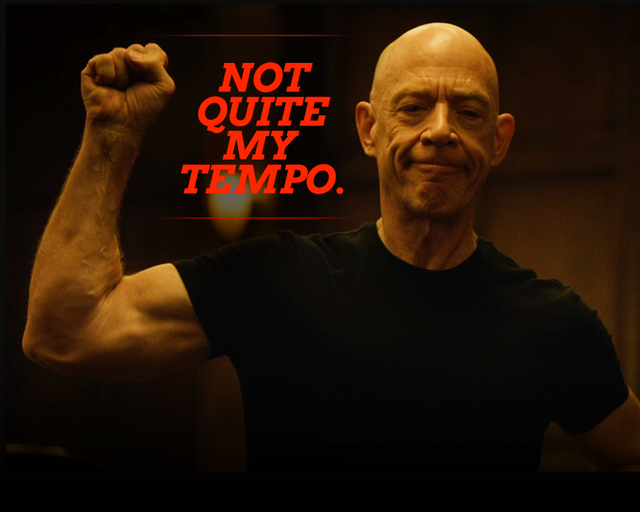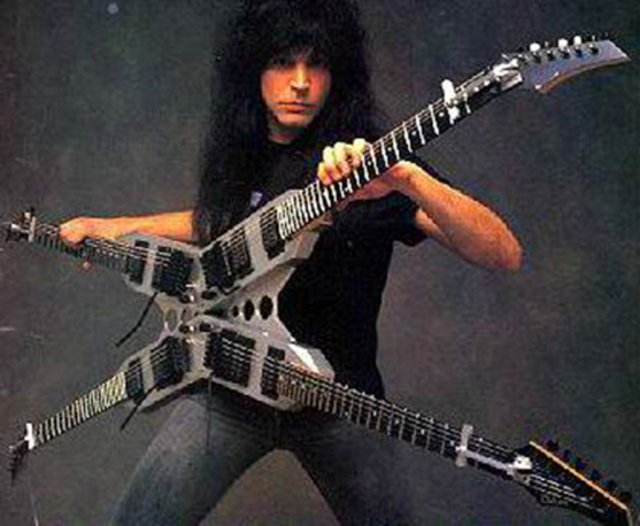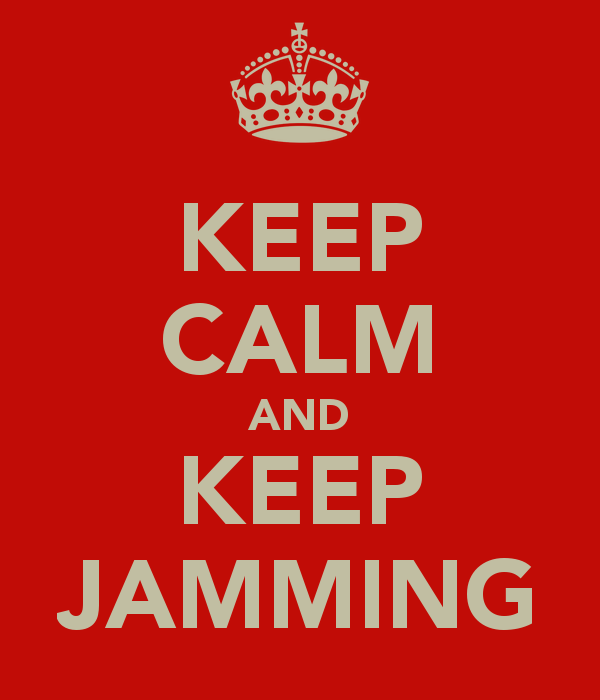ALL ABOUT THAT BASS 2 / constructing a bass improvisation
Hey everyone! It's beyond hot in Zagreb right now so I decided to ditch everything, turn the air conditioning on, enjoy the sun from the inside and play my bass. Some of you may be farmiliar with the kind of bass I play and why (and it may be of importance for this post) and for those of you who are not, you're welcome to check out the first edition of All About That Bass here https://steemit.com/music/@grobens/all-about-that-bass-fretless-bass-and-how-to-use-it. I don't really practice much anymore because I can't find the time to do a proper practice run but from time to time, I do sit down and play around some songs or chord progressions just to keep the fingers going.Today I decided to share my thoughts on approaching practice, musical memory and improvisation. I hope this will be an interesting read for anyone starting an instrument or struggling with how to become a better player because this could be applied to ANY INSTRUMENT you might take on.

PRACTICE OR WHAT YOU DON'T LEARN IN MUSIC SCHOOL
DISCLAIMER: I have nothing against music school
More than 10 years ago, I started music school. It was a natural thing to do since I've been showing interest in music from a very early age and my mom owned a piano back from when she went to music school. I started young (as they say you should) and ended up dropping out after 3 years of total misery and suffering. Today, I rarely play the piano and I use it more as a tool for making chords or chord progressions because the notes are layed out in a specific way, unlike any other instrument. Anyway, when I was in music school, the idea was simple: learn how to read music and then practice all day and all night, come to class, play what you've been practicing, get more new stuff to practice, go home, practice more, come back etc. There's nothing wrong in encouraging people to learn how to read music and practice but the very reasons behind that are all wrong. My point is this: when you get sheets and sheets of music that you just read and then play to yourself at home or to your teacher at school, there's really not much ACTUAL UNDERSTANDING of why this music is written this way, why it should be played this way and why you have to practice it. Sure, your fingers will move faster and you'll be able to play more complex stuff in faster tempos but what will you actually understand from it? Not much. I've met and worked with people that came out of music academies and they still don't understand why they are playing the music they are playing and how it should be played. They do, of course, have superior playing techniques but that's it. So, if you don't want to end up becoming a music machine rather than a musician, don't let that happen to you. Always make sure you understand the music you are playing on more levels than just hitting the right notes in time.

(otherwise, you might end up being that guy)
And that brings me to my bass practice. It's important to practice and to build up your technique but the best way to do it is to either play with other people or over some songs of your own choice. The reason is simple - music and playing is sort of like a conversation - you hear what is said, process it, think about it and react to it. You can either agree with what is said and complement it or you can disagree and change the direction of the conversation. You can talk at the same time with someone in harmony or in dissonance, you can choose to stick to one topic or constantly jump to new topics or you can choose to have a monologue, rather than a dialogue. In other words, a musician's job is always to react to what someone else is doing. If you play bass, you must always be in a conversation with the drummer. You must react to what he does the same way he has to react to what you do.Unfortunately, that's what they don't remember to tell you in music school. So, as opposed to just practicing a bunch of scales and modes from an infinite number of How to play books, just play with a friend or with a familiar song or even just the drumbeat. Of course, practicing scales is good for muscle memory, intonation (if you play a fretless instrument) and technique but you can only learn how to apply those scales and play with them if you play with somebody else. Playing with somebody else will improve your sense of rhythm, tempo, phrasing, feel and groove and that's all that playing comes down to when you go on stage with a bunch of musicians.

MUSICAL MEMORY OR WHY YOU SHOULDN'T STICK TO ONE GENRE
Here's another important step in becoming a better player. Practice is not only in your hands, fingers, legs or voice. Practice is also in your brain. When I was a kid, I was a full on punk rock bass guy, blasting twenty 4 chord 200BPM songs half an hour, mostly in dirty clubs in front of drunk punks, having the time of my life.
(here's me on the right doing that more than 8 years ago)
As I got older and as my playing got better, I started to become interested in different genres of music. I was never a ''one thing'' guy, even back then, but I would never even think to venture into anything without ''alternative'' or ''rock'' in it. I ended up playing in all sorts of bands, from etno, country and folk to playing 80's covers and even playing music that I never listened to like stoner or grunge. What I didn't realize back then was that it was building up my musical memory. When you have to learn 50 80's songs in a week because you have a gig coming up, you really have to put your brain into overdrive. Just reading through the chords is one thing, but remembering everything and trying to get the groove out of it... it's a different story. Playing music you have no experience with also builds up musical memory (and character). When I was 16, I started playing with Miroslav Evačić, and award winning Croatian etno folk musician. It happened by accident and I was very young, unexperienced and frightened. The thing with Miroslav is that he doesn't tell you the name of the song, the key of the song, the parts of the song, the tuning his guitar is in (always an alternative tuning) or really anything about anything. He just starts playing. It's up to you to either play along or go home. Oh yeah, and the rest of the band are all professional musicians and even jazz musicians. It's really a frightening experience but it's worth it because it makes you a better musician with every rehearsal and every gig. When you are in a position to just start playing SOMETHING to try and figure out what is going on and also not to get fired, your brain has to use all the tools and all the knowledge its got to make it work. Eventually, you end up being able to remember insane amounts of different music by heart and you can use ideas from one genre for another genre. You are able to **instantly evoke any part of any music you've heard or played a couple of times and use it ad hoc any way you like. ** It's really important to have that ability because it's a way to learn from different types of music and it also enables you to play with better and more experienced musicians, to learn from them and to find your way around when a jam session happens.
(this was a year ago, well after I found my place and became a musician I am today. Miroslav called me up to do this TV show thing so I played acoustic bass and a kick drum. This is traditional Podravina music where I'm from and it's really somewhat difficult to grasp when you're 16 and never heard someone playing anything like this before - and this is okay because it's in blues form.)
CONSTRUCTING AN IMPROVISATION
And now for the FUN PART! Constructing a bass improvisation. It sounds contradictory, I know, but it really isn't. Improvisation is often regarded as a way to express yourself, to be free, to explore musical ideas, to think outside of the box etc. and that is true. Improvisation is or can be all of those things OR it can be none of those things and still be all of those things. It's confusing but it's the way it works. For example, an improv Lou Reed and Laurie Anderson did in John Zorn's club the Stone featuring John Zorn is completely free and outside of the box, there's not much of anything, it just continues to happen and progresses on and nobody has to know what anybody else is doing. Sometimes there are a few moments where things sit together nicely but in a blink of an eye- it's gone and free again.
However, there is another kind of improvisation. When you have a song (whatever the structure may be) and when that song has certain notes and chords and melodies and parts A and B and so on, you need to know where the music is at any given moment while you improvise. You can just go totally free and not play with the rest of the band just because you have a solo or you're improvising. The key to a good improvisation is to naturally build it up as it goes along and to fit it with what is happening underneath. In other words, you construct something that is improvised and it can be done in many different ways. When I construct a bass improvisation on top of a piece of music (and, to be clear, I'm not much of a solo playing guy, I prefer to stick to groovin'), I try to make it sound natural even though it is improvised and every now and then I like to get back to a certain part so that the listener can hear something familiar and maybe even make out a certain construction in the improv. It's a way to make the listener more connected to what you are playing and people like to hear patterns they've heard before. You can do this by creating a simple melody pattern as your basis, something you can always come back to within the improvisation; playing variations of that pattern, making little quotes and phrases that you then put inside your basic melody and by filling in the blanks with whatever an idea comes to mind while you play.
The construction then goes as follows: basis, variations, quotes and phrases, new ideas in between, basis again.
It's important to know where you are within a song when you do this because you might fall out of rhythm or the tempo or you might miss a change from the improv into the chorus if you don't listen to what is happening. Also, you must listen for the chords played in the background to hit the right notes (or hit the kind of right notes that kind of work). Take your time to feel and lock into the groove and then start from there. It's a somewhat tricky process but it helps you improve your skills and learn a lot of stuff on your instrument.
Here's a little simple impro I developed to demonstrate the idea:
It's a jazz/blues backing track with simple harmonies (Dm7, Gm7, Bb7, A7, Dm7 - Em7b5, A7 - back to Dm7).
First, I take my time to feel the groove. While doing so, I also check out the possible positions to start the impro with. After that I start within a basic Dm scale position and move up (I'm really sharp doing so, sorry). Then I play around some more phrases and melodies up there and go back down to the same starting position. After another slightly less sharp venture up the neck, I go into a sort of frenzy where I'm honestly not even sure what the hell I played and what happened but it sounds nice. After that, there's a nice little walk through the variation of the main melody and when I go into walking bass, it fades out. There are all sorts of mishaps and mistakes here but hey, if it was perfect, it wouldn't be any fun, right? That's it for today, I'll make sure to type more soon, feel free to leave your comments and questions down below and enjoy the little impro!
Get your post resteemed to 72,000 followers. Go here https://steemit.com/@a-a-a
Your post was manually selected and voted for by @illuminati-inc (IINC) with support of @curie and its train of votes. About IINC: here. About Curie: here.